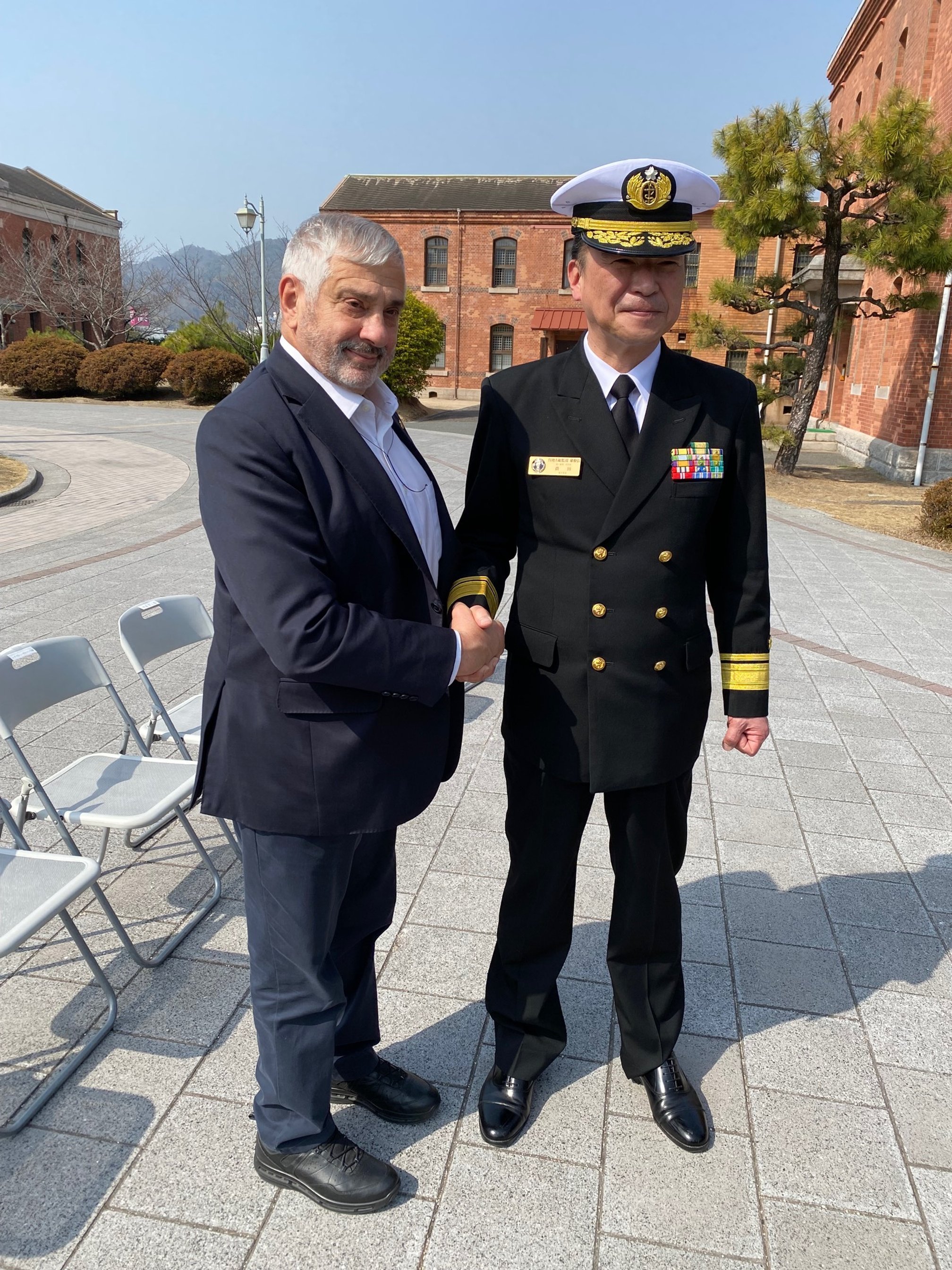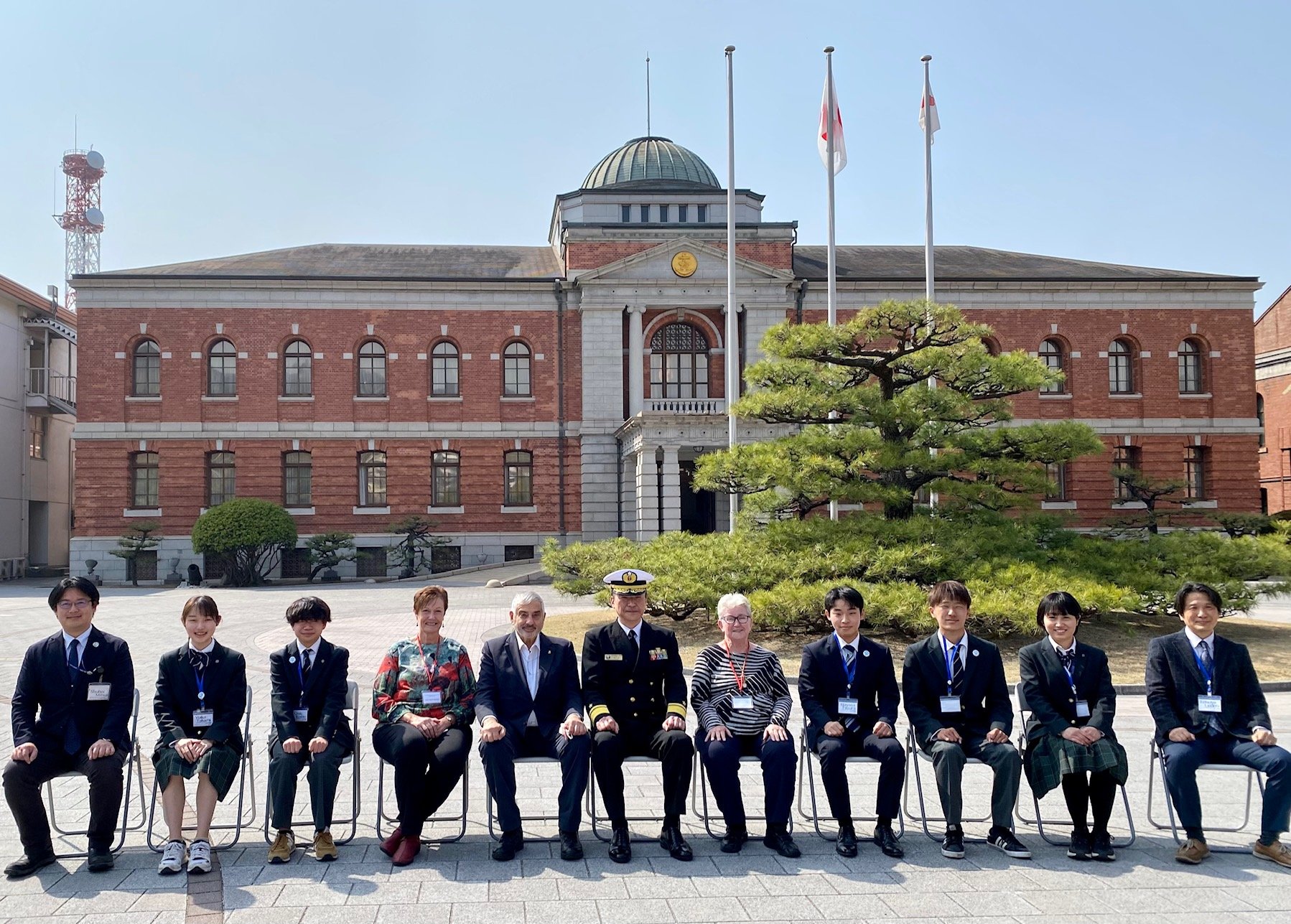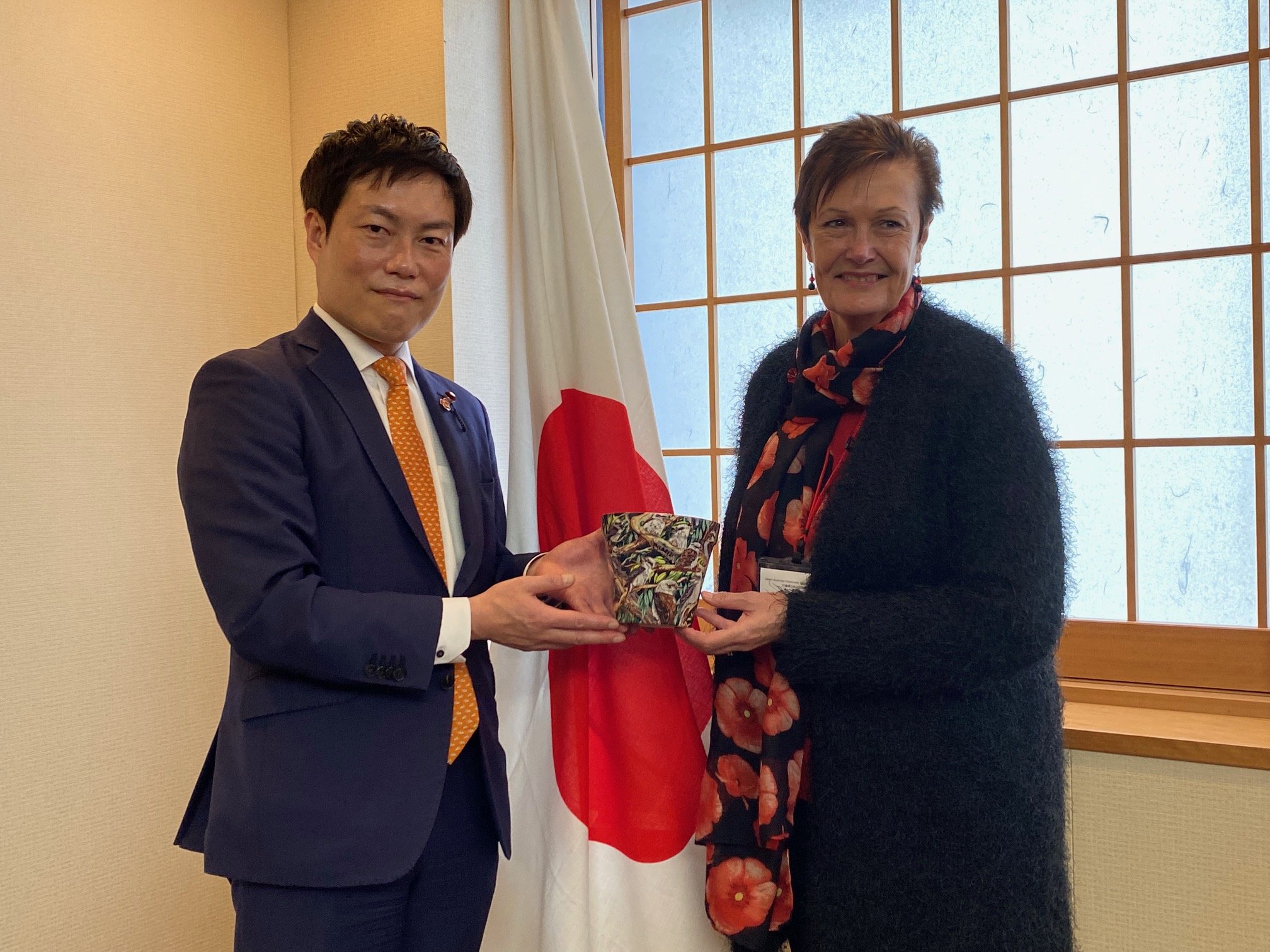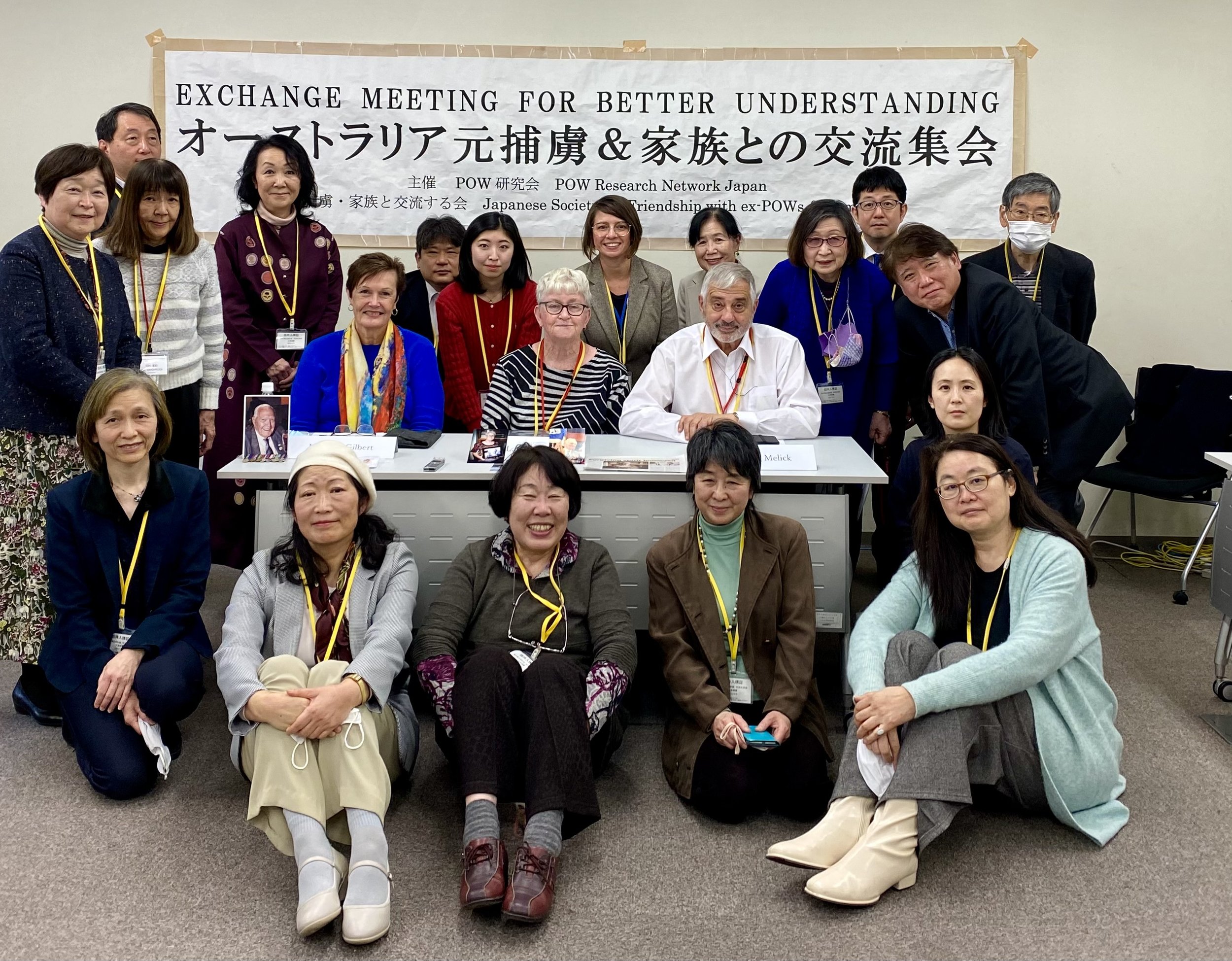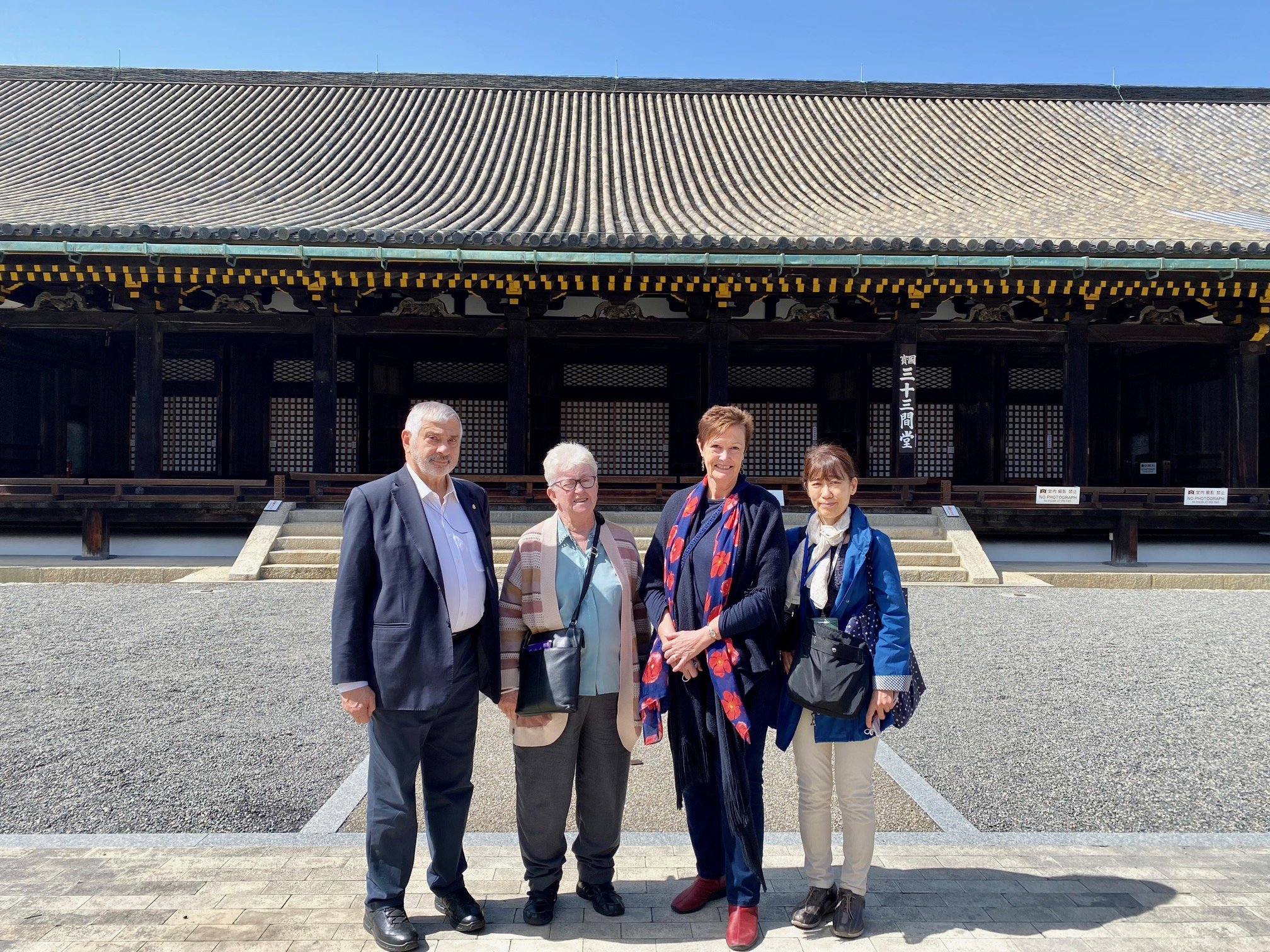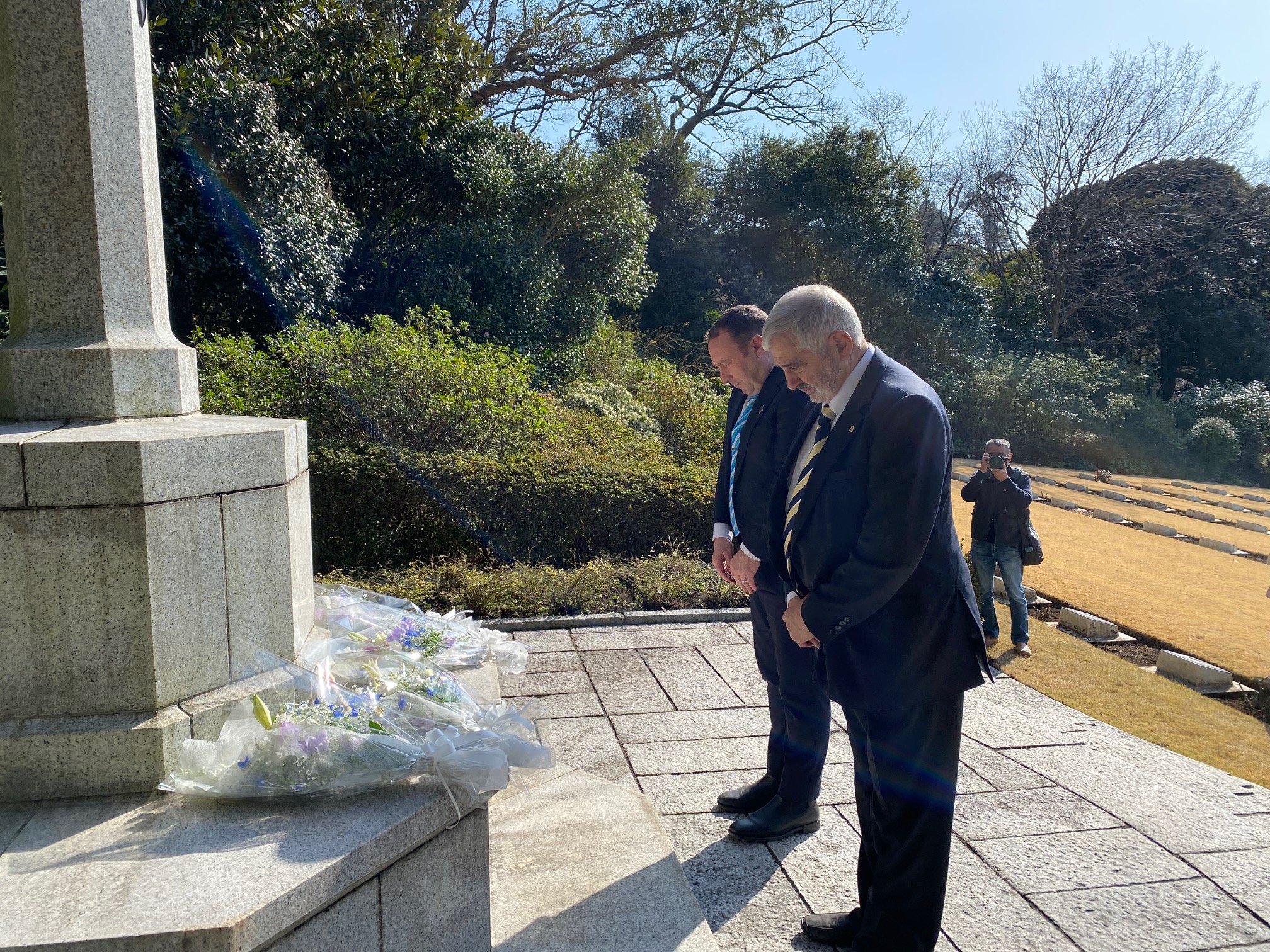JAPAN-AUSTRALIA GRASSROOTS EXCHANGE PROGRAM
Promoting post war reconciliation, understanding and goodwill between Japan and Australia
About the Program
The Japan-Australia Grassroots Exchange Program aims to deepen the mutual understanding of the peoples of Japan and Australia by inviting descendants of former Australian POWs to Japan. It offers an opportunity for healing for descendants of Prisoners of War.
Each year, the Japanese Embassy in Australia works with RSL Australia to find suitable participants for the program. More than 120 POWs and POW descendants have taken part in the program since it began.
By participating in this exchange, representatives of the RSL and descendants of POWs have an opportunity to promote post war reconciliation, understanding and goodwill between both countries.
The tour involves visiting sites including the Hodogaya (Yokohama) Commonwealth War Cemetery, the Hiroshima Peace Memorial Park, the Museum and Genbaku Dome – the epicentre of the atomic bombing. Participants also visit the POW Research Centre and have the opportunity to meet with the Japanese people, experience the culture and strengthen the bonds that have now developed between Australia and Japan.
Photo: 2023 Grassroots participants visit the atomic bomb site in Hiroshima.
2026 Grassroots Exchange Program
This program, fostering reconciliation and friendship, continues to build bridges between our nations. The following two applicants have been selected for the 2026 Japan-Australia Grassroots Exchange Program and will be travelling to Japan in early 2026.
Mr Colin Montefiore – RSL WA
Colin Montefiore is the son of POW Arthur Eric Montefiore.
Arthur enlisted in the 2nd Australian Imperial Force in Claremont, WA, on 5 January 1942. He departed Freemantle on the SS Marella on 30 January 1942. Six weeks later, he was captured in Java and became a Prisoner of War. In June 1944, he was sent to Japan on the Tamahoko Maru, which was torpedoed by the American submarine USS Tang (ss-306). The Tamahoko Maru sank in minutes, and the prisoners who had not perished immediately found themselves in the water in the middle of the night. They clung to wreckage and rafts. Around 0700 hours, a small Japanese whaling ship picked up the remaining prisoners. Around 560 men lost their lives that night. The surviving 211 prisoners arrived in Nagasaki and were given basic medical treatment. Lorries arrived to transport the prisoners to Fukuoka 14 Camp, in the Mitsubishi factories.
Arthur worked at the Mitsubishi Steel Foundry with 24 other surviving Australian POWs. On 9 August 1945, he was working in the steel yard and heard an aircraft come over at great speed, flying so high it couldn’t be seen. He watched as two parachutes opened up, and then he dived for cover. Next thing he felt was a surge of heat. He saw a telltale mushroom cloud and scrambled up the hillside, hauling a Japanese guard who had been badly injured up the hill with him, as a fire started ripping through the valley.
After surviving the dropping of the atomic bomb on Nagasaki, he was returned to Australia on the HMS Formidable via the Philippines. He took his discharge after arrival in Sydney in October 1945. Arthur lived to be 79 years of age and passed away just short of his 80th birthday. He suffered for most of his life from injuries received in the sinking of the Tamahoko Maru, the atomic bomb and the effects of his incarceration.
His son, Colin, watched and lived with his father as he continued his life with the injuries and nightmares he suffered from his war service and imprisonment. Colin says his father held no grudge towards the Japanese and taught him to be tolerant, as the Japanese civilian population had also suffered greatly. Colin is looking forward to seeing Nagasaki and the Peace Park there. Especially the plaque listing the name of his father and the other internees of Camp 14.
Mr Barry Dwyer – RSL NSW
Barry Dwyer is the son of POW Francis Joseph Dwyer (Army).
Francis, known as Frank, went to fight in the war, leaving behind his wife, Imeda and two young children. He was captured and became a POW in Changi and then in Camp 4 in Thailand. He was later moved to Ikashima Island, Japan, to work in the coal mine. After the Atomic Bomb was dropped on Nagasaki, Frank was returned to Australia on the aircraft carrier HMS Speaker at the age of 24, along with other POWs. They were taken to Ingleburn Army Camp to recover, physically and emotionally. Frank was suffering from beriberi, one of many signs of the hardship he’d endured.
He, like many others, came home from the Second World War forever changed. He made his way back to Casino, New South Wales, where he was reunited with Imelda and his two children from before the war, Norm and Maureen. Barry came along in 1949, just two years after his brother Patrick - the "post-war babies." They moved around a lot and led a very unsettled life. Barry recalls that “Something inside Dad never seemed to rest.” By the time Barry was eight years old, he had moved six times.
The scars of war lingered, and home life was often difficult. Frank relied on alcohol, and his relationship with Imelda became strained. At the age of 60, he was admitted to Concord Repatriation Hospital, suffering from the long-term effects of alcohol. He passed away just three weeks later.
When Barry turned 17, he joined the Citizens Military Forces in Penrith. He recalls dressing in uniform for parade nights and the pride he saw in his Dad’s eyes in these moments. He served for 33 years in the Army Citizen Military Forces (CMF) and the Army Reserve, including two years of National Service. Additionally, he volunteered for five years with the State Emergency Service (SES).
He is looking forward to visiting Japan and learning more about where his father was imprisoned and what it was like for survivors of the atom bomb.
previous tours
2025
The Japan-Australia Grassroots Exchange took place from 2-8 March 2025. Dr Robert Webster, RSL Victoria State President, represented RSL Australia. Accompanying him were Mr Arthur Pegg from RSL Tasmania, and Harry Maxwell Tysoe from RSL WA. Arthur Pegg is the son of Private Frederick Pegg, 2/40 Battalion. Private Fred Pegg fought during World War II in Java and Timor. In February 1942, he was declared missing and was later confirmed as a prisoner of war (POW). He was held as a prisoner of war in Java and then Changi prison camp. Harry Maxwell Tysoe is the grandson of POW Private Harry Tysoe, AIF 2/4th MGB, who died as a POW and is buried at Yokohama War Cemetery. He is also the grandson of POW Private Alfred Platt, AIF 2/3rd MGB, who made it home after being a POW in Java, Thailand and finally, Japan.
They attended a POW research forum, met with Parliamentary Vice-Minister for Foreign Affairs, Ms. Akiko Ikuina, and laid flowers at the Yokohama Commonwealth War Graves Cemetery. They visited the Hiroshima Museum and heard harrowing stories of what took place. They laid a wreath at the Memorial Monument for Hiroshima, where the names of those who died as a result of the atomic bomb are etched into the memorial. They visited the POW camp at Kobe where Harry’s grandfather was imprisoned. They visited the Juganji Temple to the east of Osaka city where a Buddhist priest was given charge to watch over the ashes of 1086 POWs, including Harry’s grandfather, until the end of the war. Participants described the exchange as a pilgrimage and a once in a lifetime opportunity.
Read more:
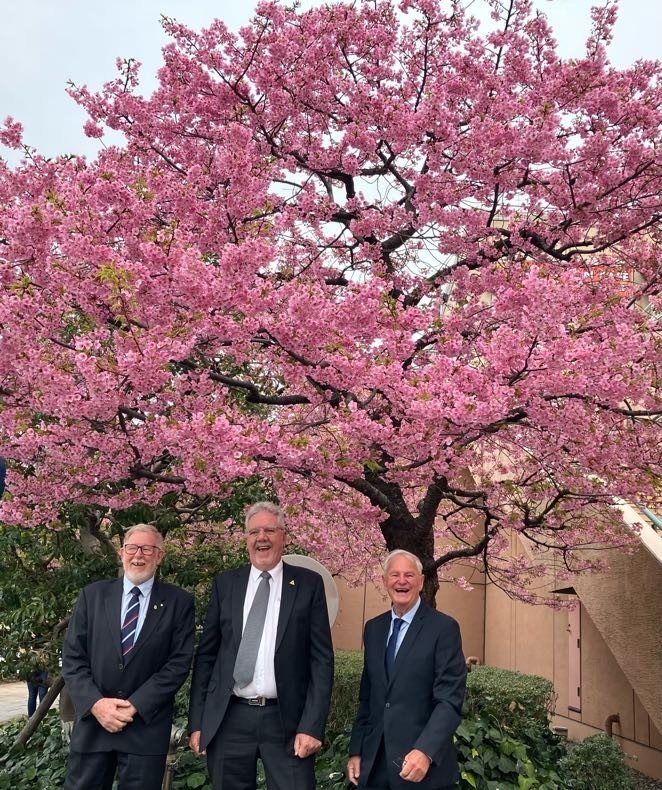
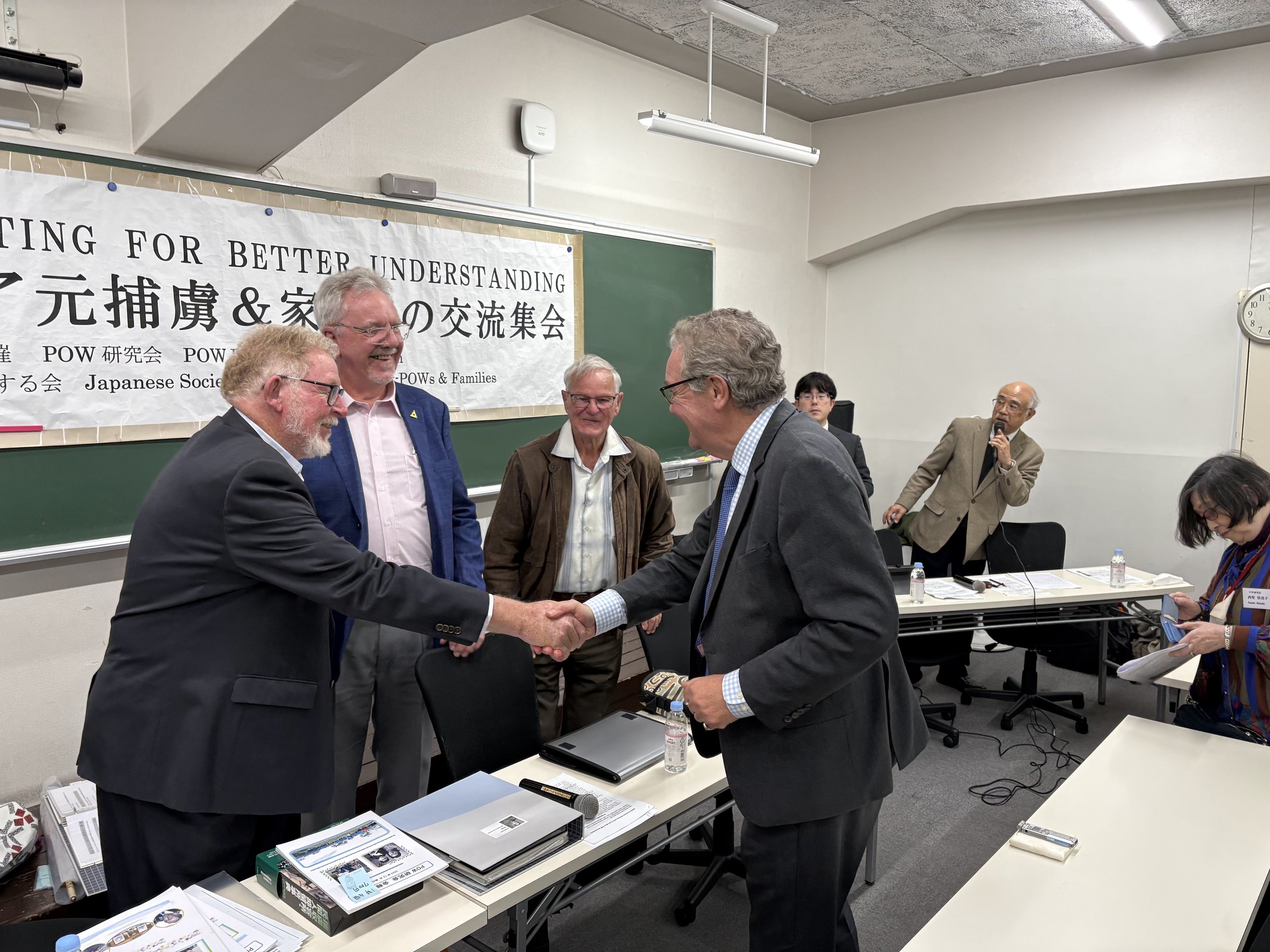
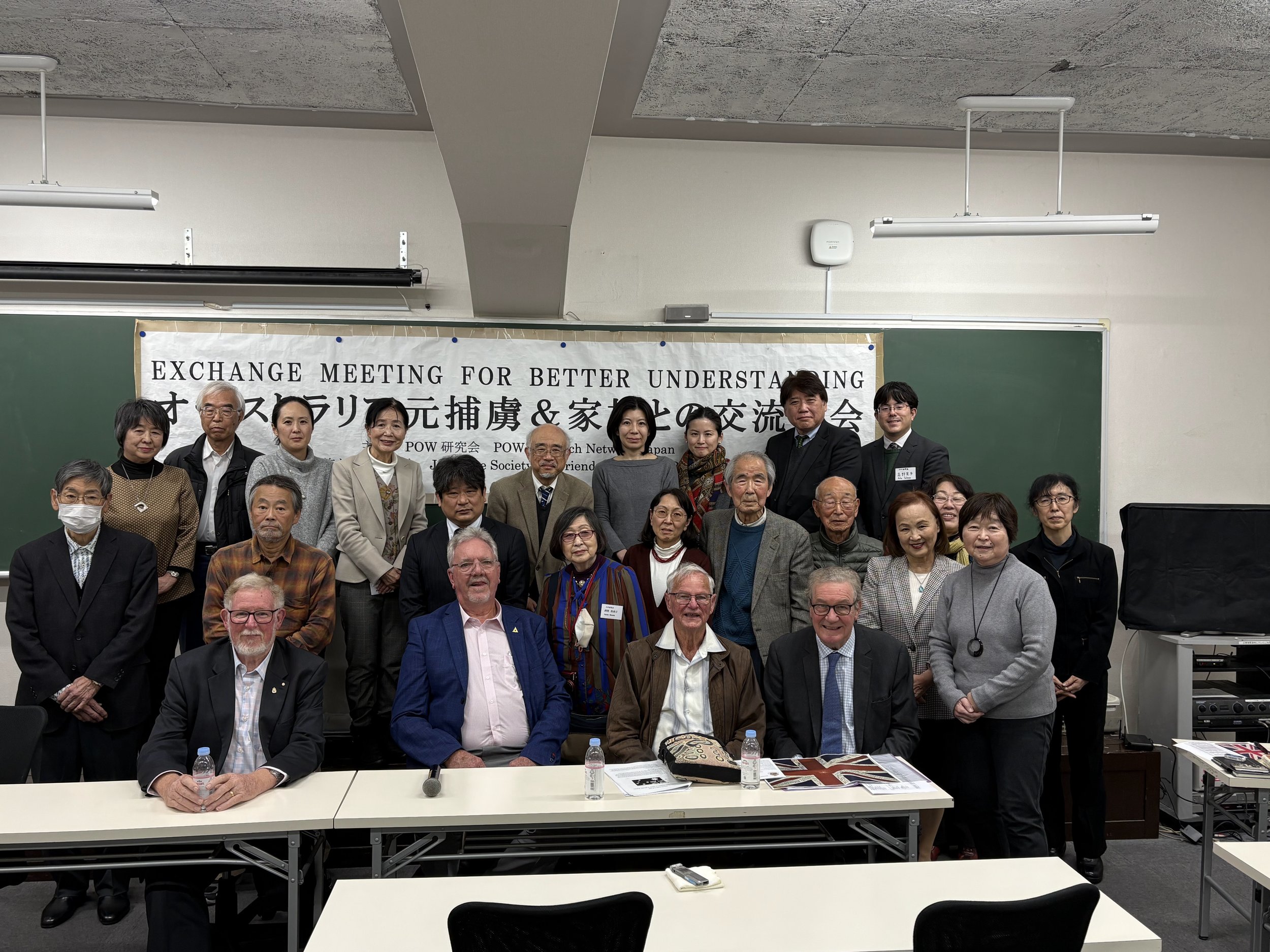
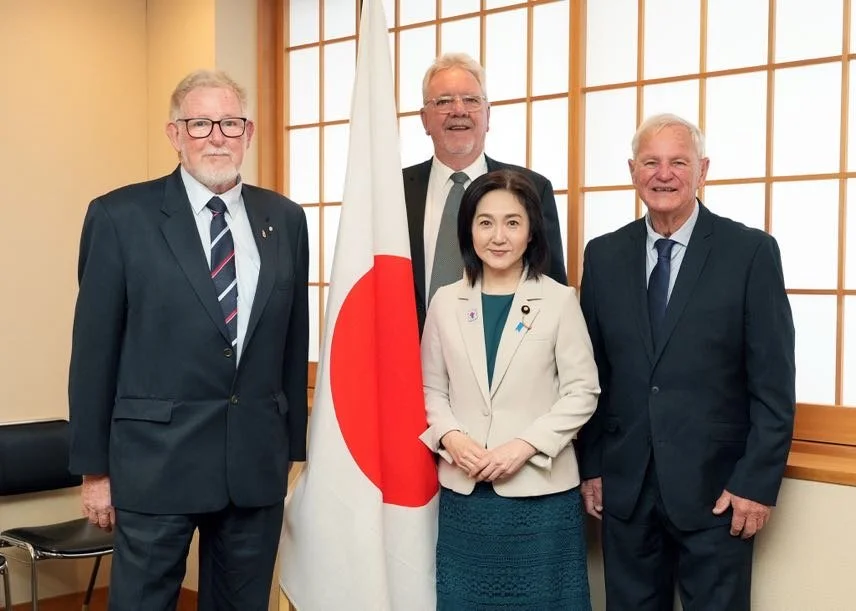
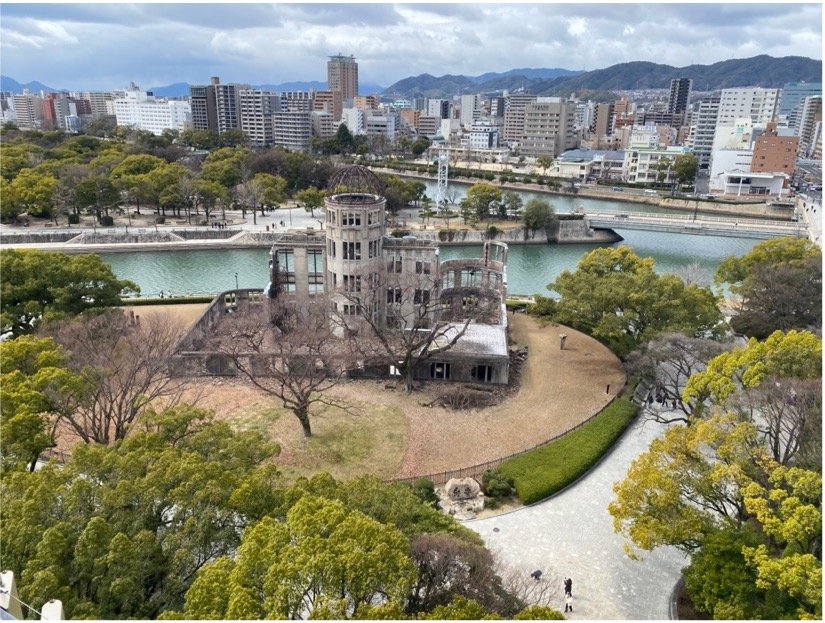
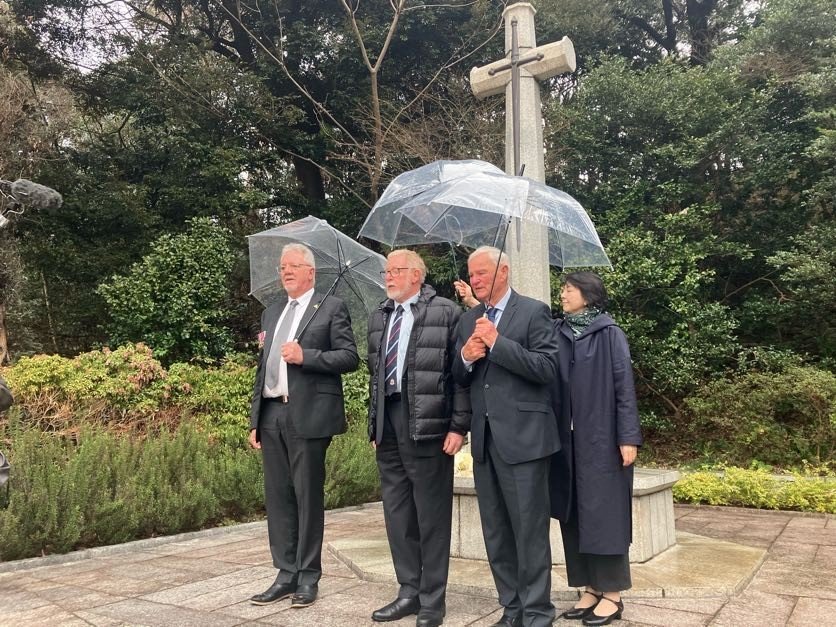
2024
RSL Deputy National President Duncan Anderson represented RSL Australia. Accompanying him from RSL Victoria was Ms. Joy Derham the daughter of Lance Corporal John ‘Jack’ Lonsdale, who was a Prisoner of War (POW) from 1942 – 1945, and Mr. Trent Beilken from RSL Queensland whose grandfather, Private Robert Rolls, became a POW six weeks shy of his 16th birthday in 1942. Duncan Anderson describes the trip as “an incredibly humbling experience.”
Read more:
Japan-Australia Grassroots Program leads reconciliation efforts for a better future - RSL Australia
Reconciling with Changi, Forgiving Hiroshima - RSL Queensland
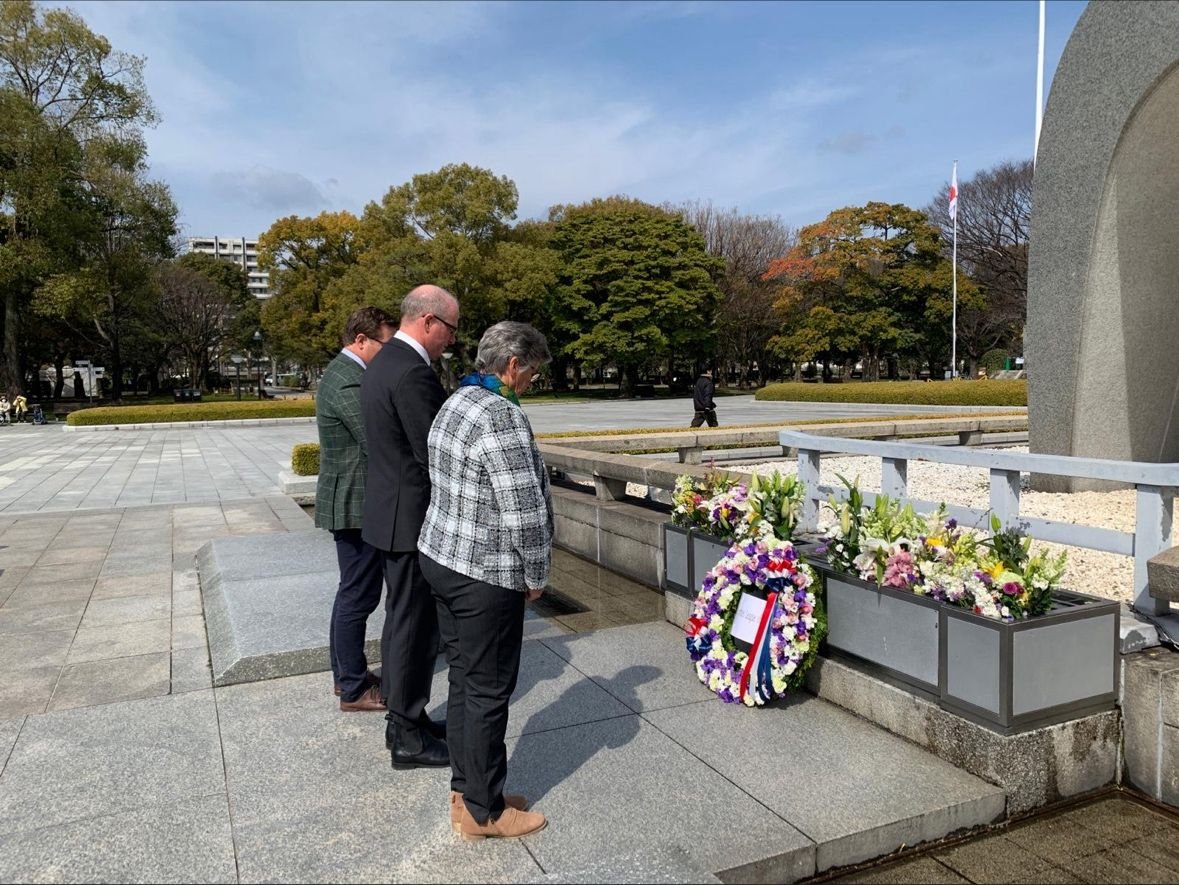
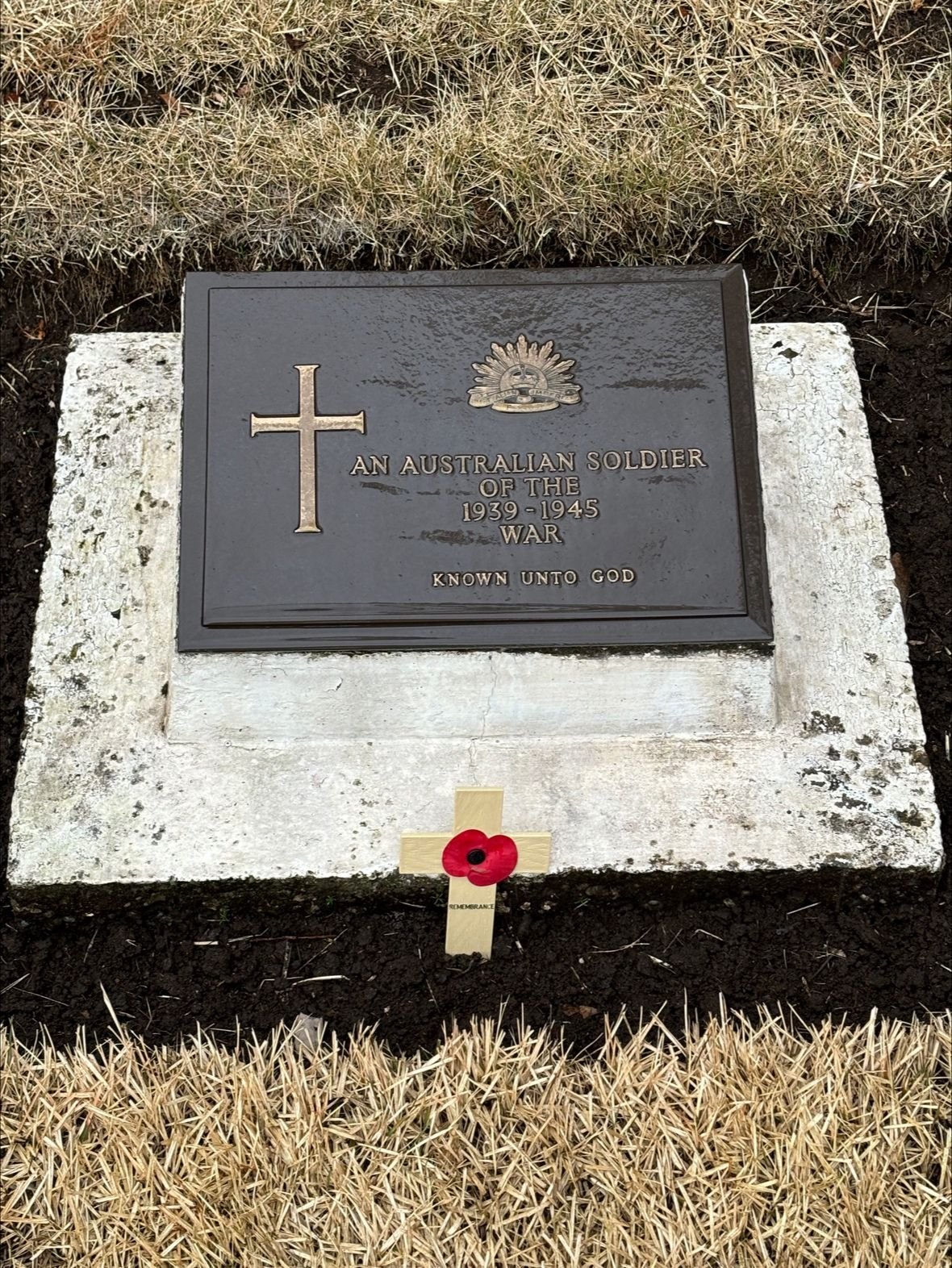
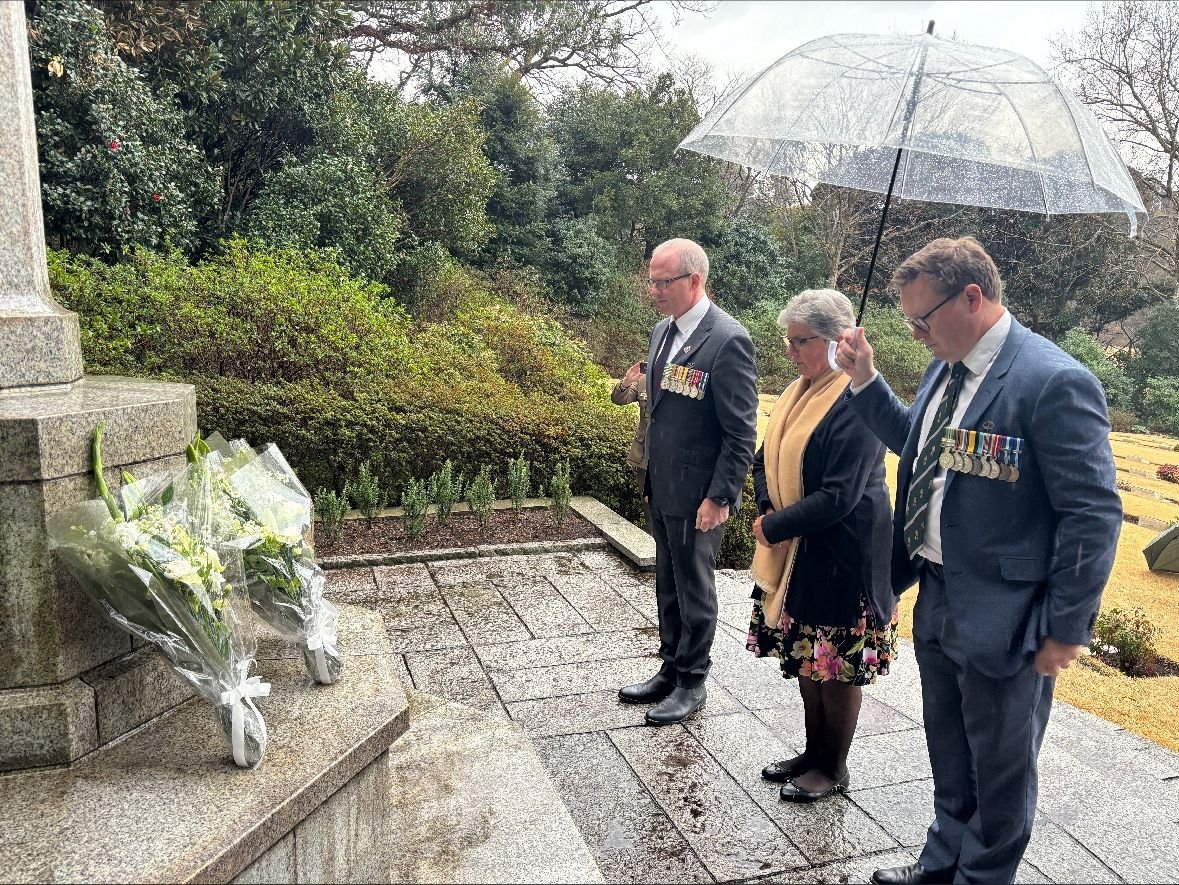
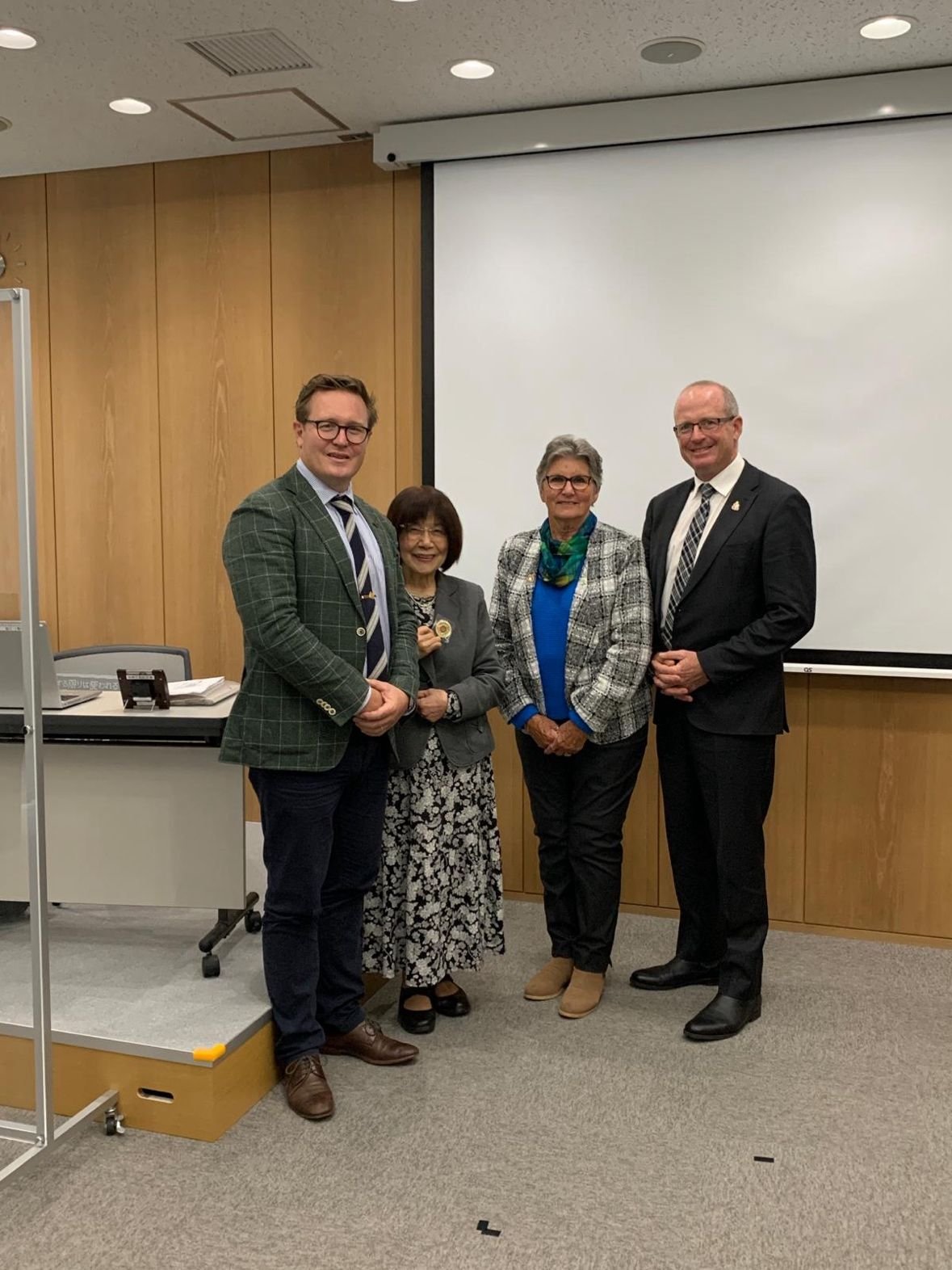
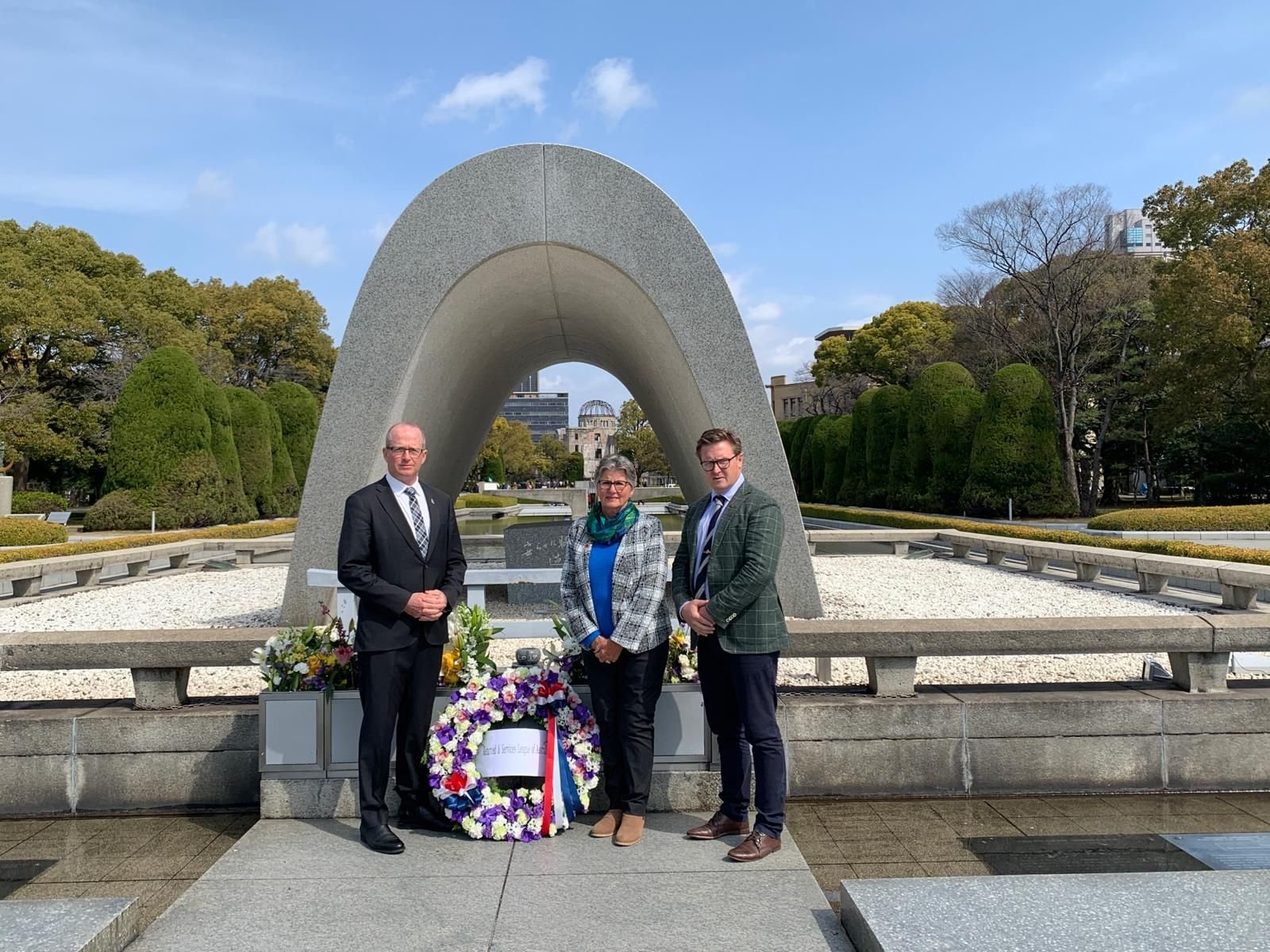
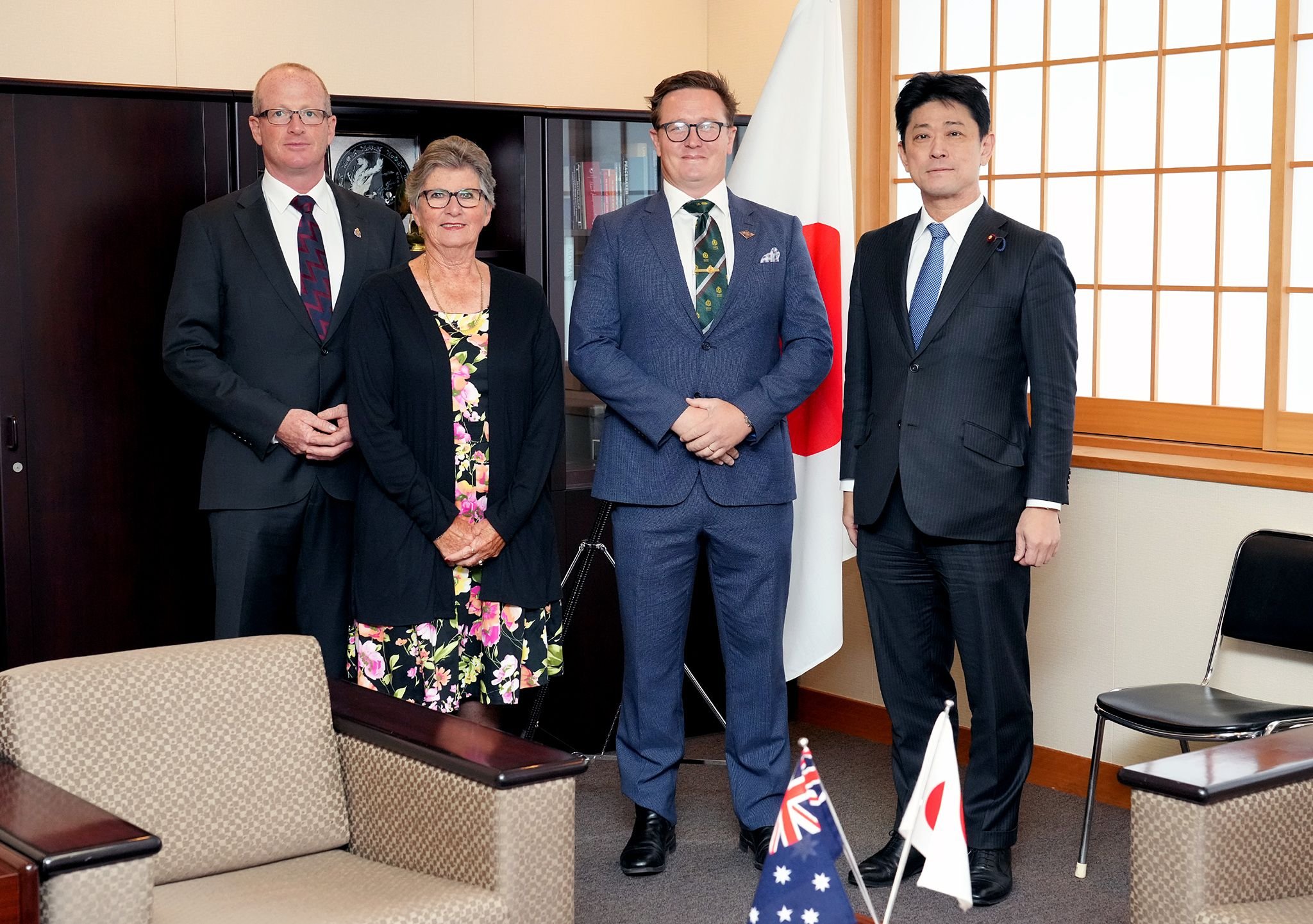
2023
RSL National President Greg Melick represented RSL Australia. Accompanying him from RSL NSW was Lesley Callcott and Leigh Gilbert from RSL Queensland. Leigh is the daughter of Cyril Gilbert, who was captured after the fall of Singapore in 1942 and remained a prisoner for three and a half years, building the Burma-Thailand Railway and as a prisoner in Changi Prison. Leigh describes the Grassroots Exchange experience as an “amazing privilege” and a chance to seek closure, apology, and some idea of what Japanese people went through during WWII.
Read more:
POW’s Daughter shares her journey of reconciliation - RSL Queensland
